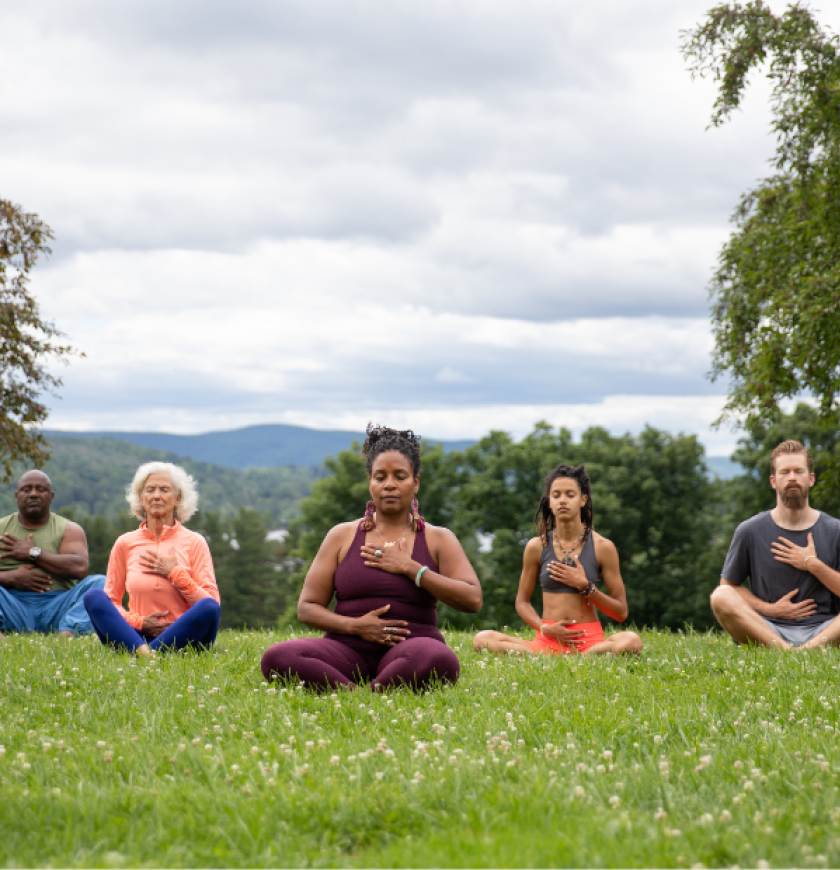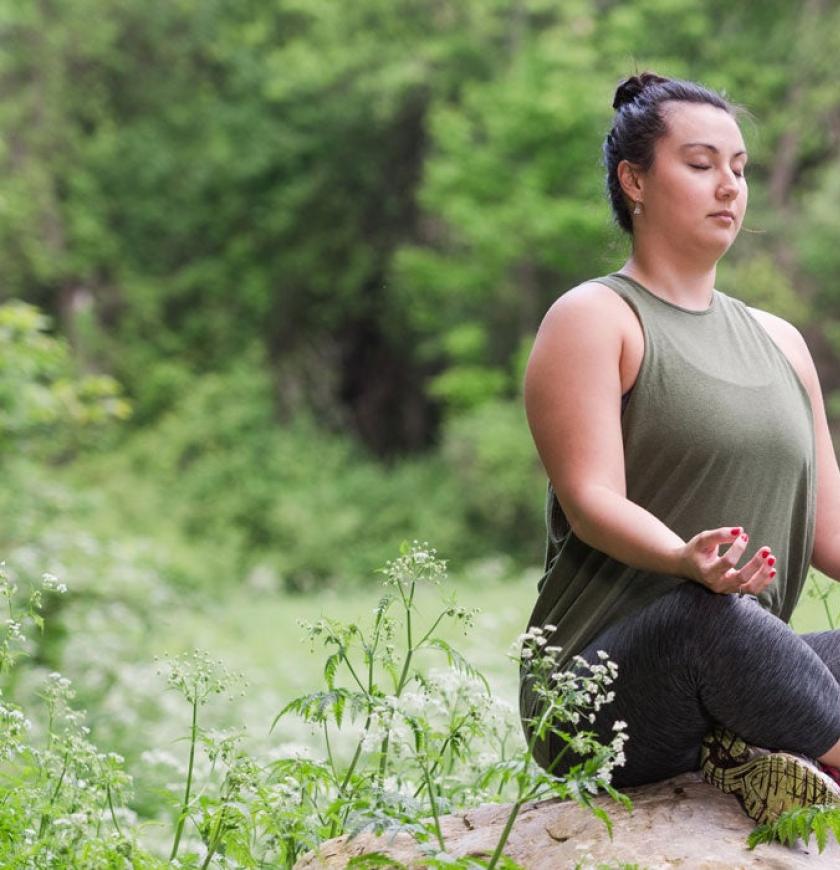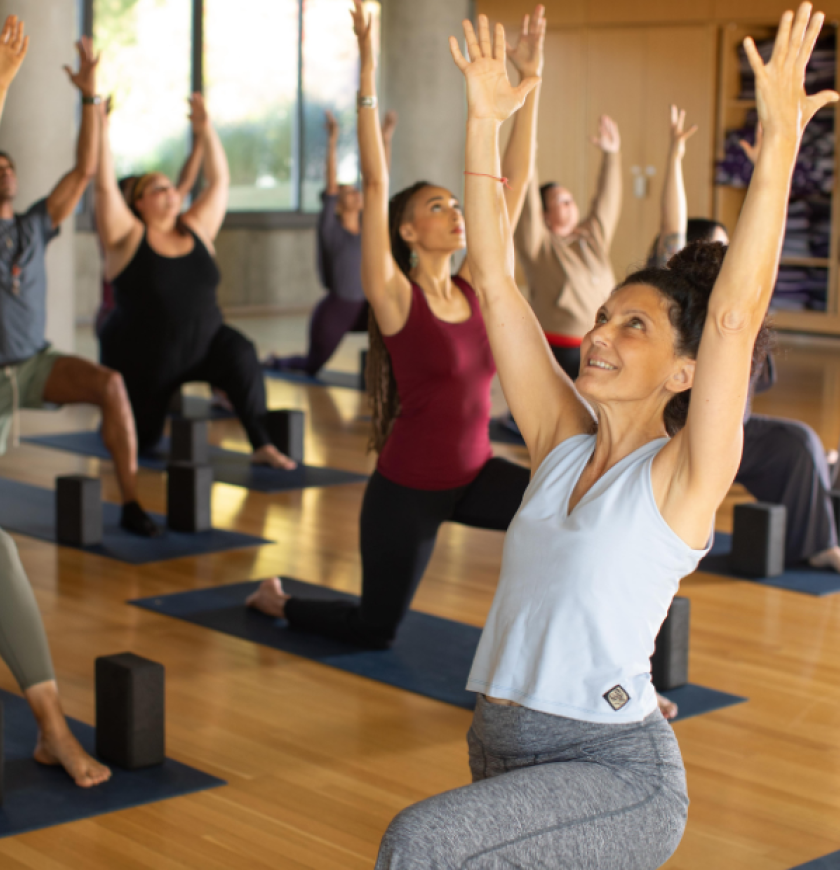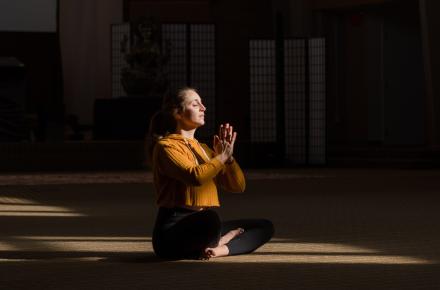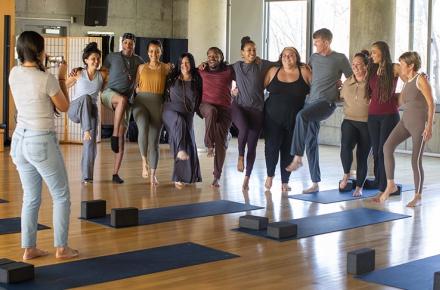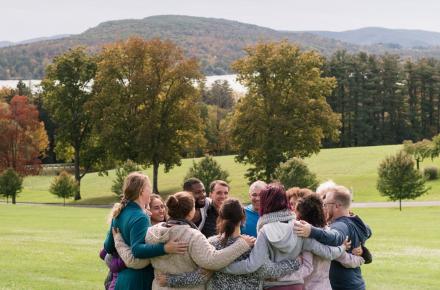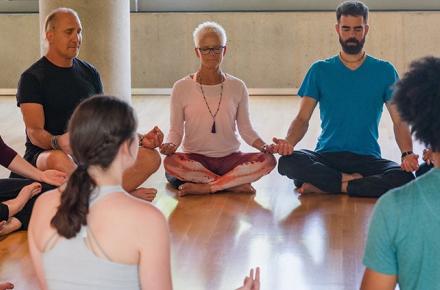Falling in Love with Life

Valentine's Day isn’t just for lovers. It’s a day for remembering love in its many forms and, whether or not we are partnered, we can put romance in our lives with simple practices that cultivate meaning, joy, connection, and richness. Here are some ways to fall in love with life.
Create rituals. For most of us, ritual is sorely missing from our lives. Rituals are about consistently unplugging from the business of life to honor what is personally meaningful, sacred, and valuable. Daily rituals can include journaling, prayer, exercise, meditation, writing a gratitude list, setting intentions, playing with pets, and regularly making time to simply sit, breathe, and savor the good. Lighting candles or incense and playing soothing music can enhance your rituals, if that feels inviting.
Go play. Julia Cameron, author of The Artist’s Way: A Spiritual Path to Higher Creativity, advises those who want to recover their creative passions to make an “artist date” each week. It’s meant to be done alone, with no productive purpose other than to “refill the well” of inspiration, images, and sensory pleasures. These self-directed play dates might include museum trips, concerts, classes, aimless neighborhood strolls, walks in nature, visits to unusual shops, finger painting in the kitchen, and dancing in the living room. Invite your inner child to set the agenda.
Savor the good. The growing field of positive psychology recommends this practice as a way to improve mood, prime the brain for more positivity, and counteract our tendency to focus on problems and worries. It involves simply focusing on what’s good in our lives and saturating the mind (and heart) with appreciation for 10 to 20 seconds at a time. Throughout the day, pause to savor the good in your life, including creature comforts, special people, simple joys and natural beauty. Pay attention to what life is constantly offering, even—or especially—during stressful times.
Fluff your nest. Author Cheryl Richardson uses the term “soul nourishing” to describe the kind of home that she wants to inhabit. It means living in a space that reflects what you love and value, with colors, fabrics, art, and objects that delight and comfort. Clearing clutter is fundamental to the process of creating a home that feels welcoming. It fosters calm and a sense of spaciousness, while making room for new things. When de-cluttering, start small to keep it manageable, and reward yourself periodically for letting go of what no longer serves you.
Eat with love. The practice of mindful eating is good for digestion, sleep, energy, and maintaining ideal weight. It’s also good for the soul. Pick one meal a week to eat mindfully, turning off nearby screens and sitting in silence or with relaxing music. Give thanks for the food and for the elements (sun, rain, earth) and people that made the meal possible. Chew each bite thoroughly before swallowing, appreciating the taste, texture, and nourishment. Stop eating when you begin to feel full, and take a few moments to digest the experience before moving on to your next activity. Eventually, try bringing this consciousness to more meals, and even that morning cup of coffee or tea.
Pat yourself on the back. It’s easy to go through life on fast-forward, moving from one activity or achievement to the next and striving for new opportunities without pausing to acknowledge what we've done. While self-improvement is a worthy pursuit, it’s important to periodically note all that you've already accomplished in life. Try saying to yourself, “I am enough, I have enough, I do enough,” and remember to honor your strengths and talents, especially the ones that are easy to take for granted. Someone else might long to be good at something that you can do easily.
Write a love letter to you. Another powerful exercise involves writing a letter to yourself that begins with “I love you for…” and lists the things you appreciate about yourself. Then shift to “I forgive you for…” and list any actions or choices that caused you or others pain. This exercise can be a powerful way to enhance self-compassion and release the energies of shame and regret.
Give thanks, often. Cultivating gratitude, another fundamental positive psychology practice, sets the stage for a lasting romance with life. Whether it’s regularly writing about or reciting things you’re thankful for, or giving thanks for misfortunes that did not happen or that you’ve recovered from, you can always find something for which to be grateful. There is ample research on the mental and physical benefits of practicing gratitude and focusing on what’s going well in our lives. An “attitude of gratitude” can create an immediate state of abundance, and a sweetness that lasts longer than a box of fancy chocolates.
© Kripalu Center for Yoga & Health. All rights reserved.
